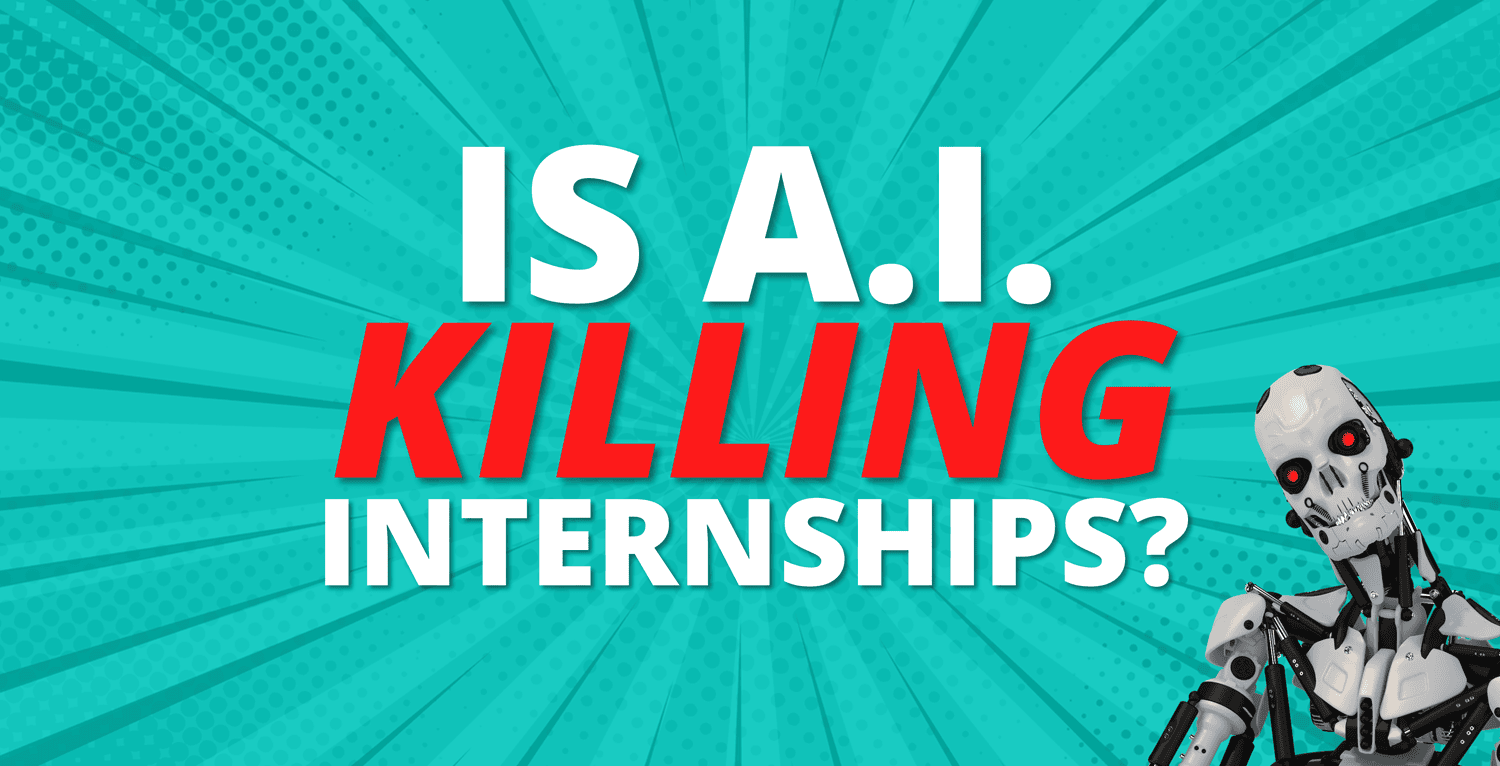Menu

The Vanishing Internship: Is AI Removing the First Rung of the Career Ladder?
Not long ago, internships were a rite of passage.
An essential first step into certain segments of the workforce, they offered a safe space for young talent to learn the rules of a workplace, absorb the culture, and acquire the protocols that can’t be taught in a classroom. Internships were more than just résumé builders – they were career ladders, giving aspiring professionals a chance to learn by doing.
But that first rung is disappearing.
With the rapid rise of artificial intelligence across industries, we are seeing routine, monotonous, and admin-heavy tasks – the kinds typically assigned to interns – being automated out of existence. As AI systems increasingly take over scheduling, data entry, report formatting, and even basic customer service interactions, companies are finding they no longer ‘need’ interns for this kind of work.
At first glance, this might seem like efficiency in action. But from an HR standpoint, it could be a cause for concern.
According to a recent SHRM report, AI poses a growing threat to both interns and new graduates, largely because it is eroding the stepping-stone roles that once helped people successfully enter the workforce. Entry-level positions and internships were never just about productivity; they were about potential. By removing the lower rungs of the ladder, employers risk cutting off a key path for fresh talent.
The issue is not that AI is taking over everything, because it isn’t, as AI still struggles with nuance, creativity, and contextual decision-making. What it can do, however, is an increasing amount of foundational work. And here’s the catch: employers now expect junior employees to come in with experience or expertise that would previously have been learned through internships. But if those internships no longer exist, where is that experience supposed to come from?
Employers are inadvertently creating a paradox: they want new hires who can do what AI does, but they are removing the very mechanisms (like internships) that allow people to build those skills. The result? A growing skills gap at the base of the workforce pyramid.
This isn’t just an operational issue, it’s also a talent pipeline and equity issue. Internships have historically served as access points for students and recent graduates from underrepresented backgrounds to gain meaningful workplace exposure. Without them, employers run the risk of deepening socioeconomic divides in the job market.
AI is not the enemy, but thoughtless adoption of it is. If we allow automation to expand without intentional strategies for talent development, we may soon find ourselves facing a workforce that is efficient but brittle. Internships must be reimagined, not eliminated. They can still exist, but perhaps with new responsibilities, shadowing opportunities, mentorship, and training in areas where human learning is essential. Knowledge capture, transfer, and sharing is a critical part of the new internship paradigm.
The broader trend of AI-related job displacement is happening now. But displacement doesn’t have to mean disconnection. As employers and HR professionals, we must advocate for AI to be used intentionally – not accidentally – especially when it comes to cultivating future talent.
It’s time we ask: are we investing in AI at the expense of investing in people? Because if we remove the first rung, we may find no one is left to climb.
If you would like to discuss how we can help you optimize the internship and your use of AI, please get in touch with me at amanda@orgshakers.com



